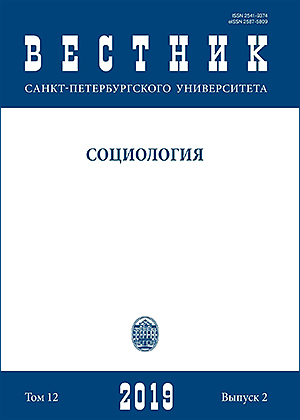The safekeeping of the personality in the information societies: the application of the approach of J. Habermas
DOI:
https://doi.org/10.21638/spbu12.2019.201Abstract
The purpose of this article is to define, how in J. Habermas’s socio-political thought is guaranteed the protection and safekeeping of an independent human personality in modern informational societies. To solve this problem, the author seeks to define what is meant by the “personality”. The author emphasizes two different conceptions of the “personality” among various works of J. Habermas: “philosophical-personalistic” and “social-sociological”. By integrating these understandings, the author offers an original socio-philosophical definition of personality, in which the personality retains both individualistic and social features. It is especially emphasized that for the assertion of the personality and its development an equal, subject-subject dialogue with Others is necessary. The article reveals that the development of the personality, above all, is interconnected with the safekeeping in a society of a cultural, normative-value “lifeworld”, which is being violated by the mechanisms of systemic technocratic regulation in modern times. The principles of this regulation are based on the systemfunctional approach. The author specifies the advantages of J. Habermas’s approach, which can ensure the development of the genuine normative nature of the person. It contradicts with the system-functional process of intrusion of the artificial “normative pattern”, defined by the authoritative structures, to manipulative “construct” the norms of the understanding of the personality. To protect the sovereignty of the personality, the free dialogue is being established, and the corresponding political institutions are being reformed in society. The development of the personality is the initial goal of the model of deliberative democracy. The safeguarding of a personality in society is guaranteed, when each person can express their deepest meanings, perceptions and embrace in communication another personality in its originality and uniqueness in a dialogue.
Keywords:
J. Habermas, personality, phenomenology, the lifeworld, the theory of communicative action, deliberative democracy
Downloads
References
References
Downloads
Published
How to Cite
Issue
Section
License
Articles of "Vestnik of Saint Petersburg University. Sociology" are open access distributed under the terms of the License Agreement with Saint Petersburg State University, which permits to the authors unrestricted distribution and self-archiving free of charge.




